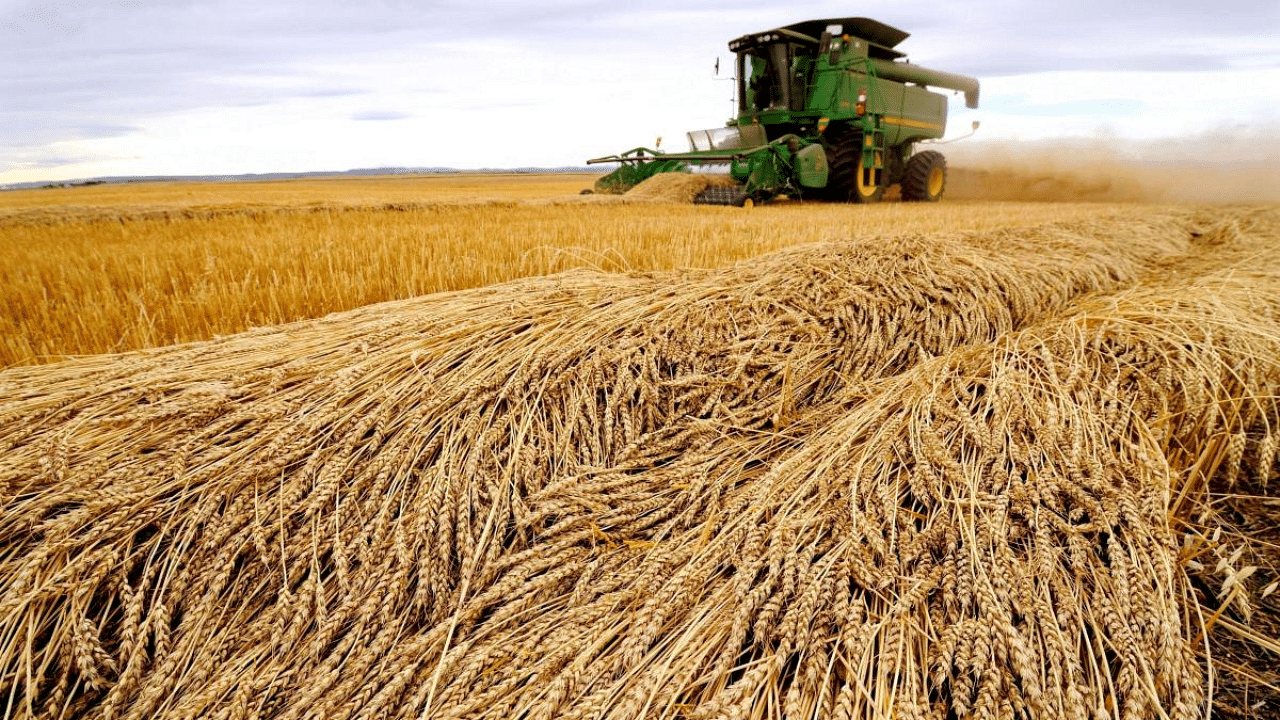
Both developments were expected. The Modi government, which had refused to withdraw the bills in the summer and monsoon sessions of Parliament, blinked before the winter session, fearing electoral losses in the two states. The victorious farmer leader Rakesh Tikait promised to hold tractor rallies every day to Parliament from November 29, when the session begins, to press for MSP law and other demands.
Some Rs 2.5 lakh crore of taxpayers’ money -- 75% of the Food Corporation of India’s (FCI) procurement budget -- is annually poured into buying rice and wheat at MSP. Last year, two grades were purchased -- paddy ‘A grade’ at Rs 1,888 per quintal and paddy ‘ordinary’ at Rs 1,868 per quintal, a marginal 1% difference. This 50-year-old practice has ensured that FCI godowns are full of low-quality rice at near ‘A grade’ prices.
FCI godowns are overflowing as supply exceeds demand. Besides, rice and wheat sold in retail markets and through PDS are often priced lower than the MSP procurement price, as a result of which FCI makes huge losses every year. These losses due to the difference between procurement price and supply price, along with distribution costs, is paid to the FCI by the government as food subsidy – again funded by the taxpayer.
But you cannot make the private sector buy and stock wheat and rice at MSP, which India produces much more than it needs. MSP for wheat and rice is unsustainable and hurts the procurement of other crops from the arid regions of the rest of India, and the farm unions know this. So, they want the MSP to be enshrined in law, which will force the status quo and ensure continued procurement of rice and wheat at MSP through the 2,500 APMC mandis. Hence, 60,000 mandi arthiyas (middlemen) are funding the year-long protest.
Interestingly, there are 21 other crops under MSP, besides rice and wheat, for which consumer demand is high and price realisation is better. Among the other crops under MSP are five pulse varieties namely chana, arhar, urad, moong and masur that require support. These are mostly procured by private traders and command market prices that are two to three times MSP prices. Government buying in pulses is minimal. Similarly, there are seven oil seeds, namely mustard-rapeseed, groundnut, soybean, sunflower, sesame, safflower and nigerseed, where the difference between market price and MSP procurement price is more than double. If MSP is made a law for these 12 crops, it will reduce the inflated kitchen budget of the average Indian household. It would also reduce imports of two million tonnes of pulses and 10-15 million tonnes of edible oil each year.
India is the world’s largest consumer and importer of edible oil. Over the last 50 years, we have had a skewed policy favouring oil imports -- palm oil imports from Malaysia and Indonesia, soya and sunflower oil imports from Brazil and Russia and olive oil imports from Europe and North America. Indian business houses, sensing opportunity and a huge demand-supply gap, set up plantations and solvent extraction units across the world to export back to India. Import duties were repeatedly slashed to bring down rising prices and reduce food inflation. This hurt domestic production. Last year, India imported 13 million tonnes of edible oil, with the import bill touching Rs 75,000 crore, even as domestic production remained at nine million tonnes.
Pulses and oilseeds are not water-guzzling crops like rice, wheat, jute, sugarcane and cotton. If MSP is made legal and guaranteed for pulses and oilseeds, it will help farmers of the arid regions of India such as Rajasthan, Gujarat, Maharashtra, Madhya Pradesh and parts of Karnataka and also help reduce imports. But, of course, that will go against the interest of the 10,000-strong lobby of commodity traders who form a three-tier cartel led by Swiss commodity major Glencore importing pulses into India, as per a 2,000-page income tax report titled “Appraisal Report in the case of Pulse Importers and Traders Group” submitted to the late Finance Minister Arun Jaitley in 2017. In a country where rich farmers, mandi cartels, commodity cartels and vote-bank politics dictate farm policies, there is little hope for the small farmer in distress.
(The writer is a journalist and author of three books on economic governance)
Watch the latest DH Videos here: